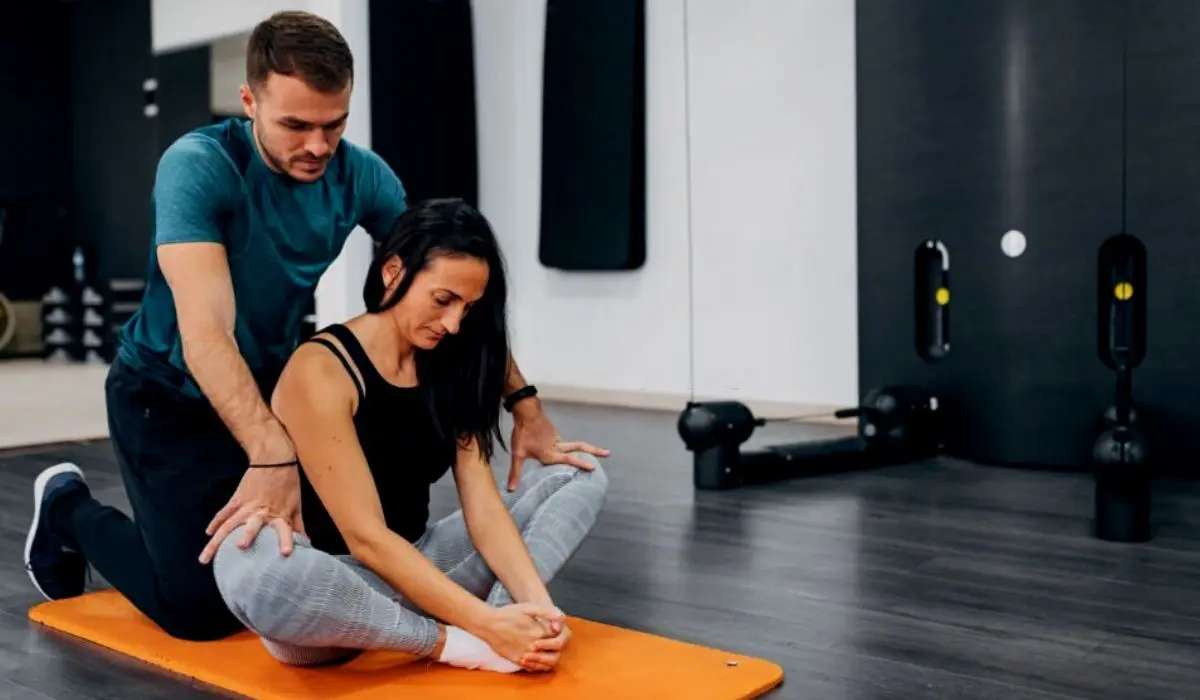A groin strain can be defined as an injured inner thigh muscle. It can happen when one of the inner thigh muscles gets overstretched or torn or undergoes any other kind of injury. It is also referred to as groin pull and the intensity can be mild or severe. When you have this you will feel pain and tenderness in the groin area and when you try to move or to put the legs together the pain can get extreme.
You can identify it by this pain and pain while doing other activities such as when raising the knee of the injured side. There will be swelling in this area, and in some cases, you can also find bruising in the groin area outside the skin or on the inner thigh part.
If you are suffering from a severe groin strain you will not be able to walk properly and you will be automatically limping when you walk.
Causes Of Groin Strain
A groin strain is common among those who play contact sports, such as football, soccer, and basketball. It can also happen in runners and dancers. It can also happen when you do everyday activities.
Common Causes Of Groin Strain
- Muscle pull
- Pulled tendon
- Overstretched ligament
- Lifting heavy objects
- Pushing heavy objects
- Pulling heavy objects
- Any other injury on the hip joint
- Any diseases affecting the hip joint
Some of the less common causes of groin strain:
- Kidney stone
- Testicle inflammation
- Urinary tract infection
Groin Strain Treatments
Groin strain can be treated and fully healed when you undergo the right treatment.
Treatments For Groin Strain
-
Take a break
The first step to any sports injury is to take a break from the sports and other training and to undergo relative rest. This is the period that is needed to completely heal the groin strain and to slowly start the gentle workouts, then gradually get back to normal.
-
Icing
Ice the inner thighs to fight off inflammation and pain. You can use cold packs or wrap ice cubes in a piece of cloth and sleep it in the groin.
-
Compression
The inner thighs can be compressed to reduce the tension and pressure in this area.
-
Elevation
Keep the injured part at an elevated position, you can use a pillow for that.
-
Medication
A few medications can relieve you from the pain and reduce the swelling.
Related:- 6 Steps To Treat Groin Injuries In Runners: A Runner’s Guide For Groin Injuries Recovery
Other than this you can also undergo:
- Sports physiotherapy
This will include massages, stretching exercises, and heat treatments
Severe cases of groin strain can lead to undergoing:
- Electrotherapy
- Surgery
How To Prevent Groin Strain?
- Always start with a warmup
- Do proper stretching exercises for inner thighs and outer thighs
- Start sports physiotherapy along with training
- Build to increase core strength
- Do not overtrain
- Train for pelvic stability and flexibility
The Bottom Line
Groin strain can be all of a sudden sending disabling pain from the groin to the leg or it can develop over time. This is most common in athletes who spend most of their time in activities that require a lot of sudden leg movements and twisting. If you are such a sportsperson you can start physical therapy even before having a groin pull to build strength and to prevent or lessen the possibility of having a groin strain.
When you feel pain when you move or out your leg strength when you rest you have to consult a doctor. The key is to take care of all the signs that your body is sending you and do proper follow-ups.
Read More:- Injury Prevention Strategies For High-Impact Sports: Staying Injury-Free
FAQs
Q. Is a groin strain very painful?
It can depend on the type of groin strain that you suffer from. Some movements might cause mild pain and some extreme pain.
Q. Is walking good for groin strain?
It is not recommended to walk when you are suffering from a groin strain. You should reduce walking to avoid putting more stress on the groin and it is recommended to use crutches for walking.
Q. How do you sleep with a groin strain?
When you have a groin strain you can try sleeping by keeping the painful side facing upwards. Other sleeping positions such as sleeping on the sides can lead to pressurizing the groin area.
